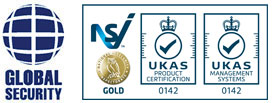Travellers in 2070 will have a heartbeat signature as part of their biometric data for passports, according to a new report by EasyJet. The 2070: The Future Travel Report predicts that the use of our unique heartbeat signatures will be as widespread as the use of biometric fingerprint data is today.
Our cardiac identity is unique to us, just as our fingerprints are, and scientists believe that in the future heartbeats will be a universal method of identification, recorded on a worldwide database. This information will make passport security a matter of passing through a cardiovascular scanner, and it could be used for other access control systems.
Among the other technological advances in travel in 50 years time will be biometric sensory plane seats, which adapt to the passenger’s body shape for a more comfortable journey. Meanwhile, there will be no need to watch whatever movie is playing on the in-flight entertainment system, as optoelectronic content will be beamed straight into your eyeballs.
Furthermore, 3D printing technology will take levels of convenience and sustainability to new levels, with 3D printed menus that will allow hotel guests to print exactly what they want to eat, reducing waste. Guests will also be able to optimise their accommodation in advance so that the room temperature, bed firmness and ambient sound is exactly to their liking.
The report was commissioned by EasyJet and produced by a team of leading scientists and researchers. The authors include Professor Birgitte Andersen of Birkbeck, University of London and CEO of Big Innovation Centre, Dr. Melissa Sterry, design scientist and complex systems theorist, and futurists Shivvy Jervis and Dr. Patrick Dixon.
Other highlights include the use of haptic suits at historical sites to recreate the authentic experience of travelling back in time.
TV presenter Dallas Campbell fronted a video presentation on behalf of Easyjet. He said: “Some of the predictions in easyJet’s new report are absolutely astonishing – a personal favourite is the idea of being able to travel back in time through haptic suits. I’d love to be able to experience the sights, sounds and atmosphere of the very first Olympic Games.”
He added: “With everything from the airport, aircraft and destinations set to evolve, travellers are in for some amazing developments as the travel industry continues to evolve and thrive.”
Lead author Professor Birgitte Andersen of Birkbeck College, said: “This next 50 years will bring the largest technological advances we have ever seen in travel and tourism.”
She added: “Aspects of how we holiday will be transformed beyond recognition; in the future holidaymakers will be queuing at the hotel buffet to have their breakfast omelettes and fry-ups 3D printed by machines, our heartbeat will become our passport, and in-ear devices will translate the local language in real time and enable us to speak the local lingo.”
“Looking forward, by the year 2070 the destinations we fly to, the type of accommodation we stay in, and the experiences we have, will have changed immeasurably.”
According to EasyJet, the innovations would make 75% of Britons more likely to go on holiday in the future.
If you are looking for biometric face readers in the UK, please get in touch with us today.

Leave A Comment